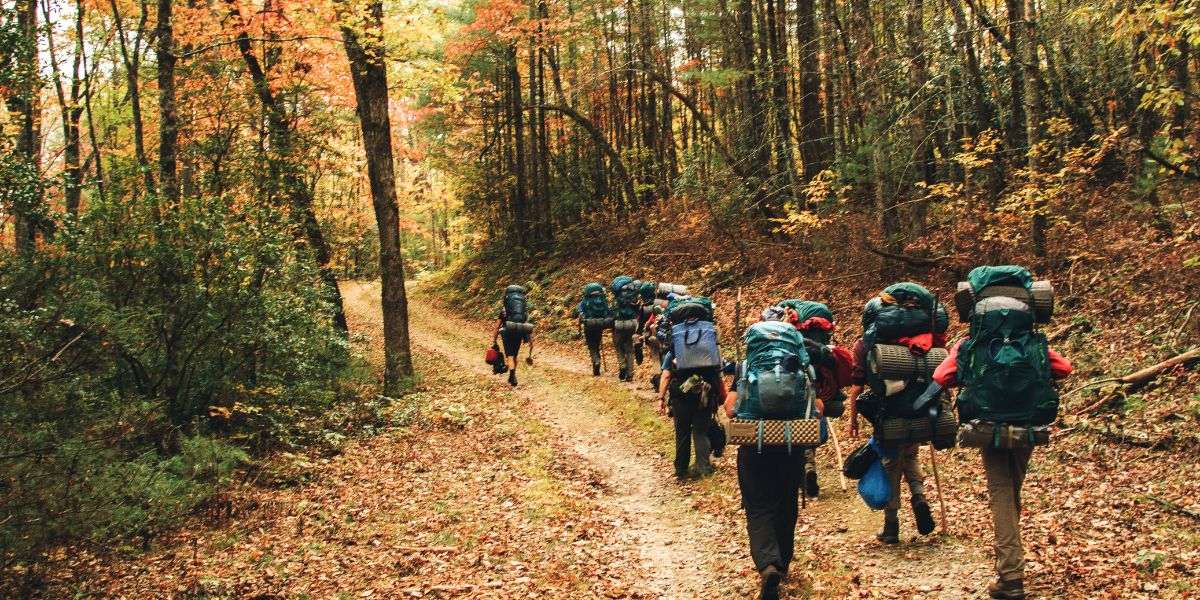This Mental Illness Awareness Week, Blue Ridge Therapeutic Wilderness is shining a light on the ways depression can manifest in young people. It can be difficult to distinguish between a teen who is dealing with the regular challenges of growing up and a teen who is struggling with depression. From mood swings, isolating from family, and spending too much time on social media, to sleeping in, trying illegal substances, and breaking rules, some symptoms of depression closely mirror the symptoms of simply being a teenager.
According to data from Mental Health America (MHA), 11.5% of youth (over 2.7 million youth) in the United States are experiencing major depression in 2023, and nearly 60% of that population did not receive any mental health support. This data is one set of many which illustrate a clear need for comprehensive mental health support amongst teens and young adults.
Step One: Know the Signs
The first step in getting a loved one the help they need is to educate yourself about what to look out for. It is worth consulting a medical professional if you observe any notable prominence of the following indicators for depression:
prolonged sadness, unexplained bouts of crying;
significant changes in appetite and/or sleep;
irritability, anger, worry, agitation, anxiety;
pessimism, malaise, indifference;
low energy or loss of energy, persistent lethargy;
feelings of guilt, worthlessness;
inability to focus, indecisiveness;
inability to enjoy former interests, social withdrawal;
unexplained aches and pains;
recurring thoughts of death or suicide.
Step Two: Seek Professional Support
As isolating as it may feel to care for a child with depression or mental health struggles, you are not alone. MHA reports that in 2023, 1 in 10 youth in the U.S. are experiencing depression that is severely impairing their ability to function at school or work, at home, with family, or in their social life.
Chronic depressive disorders can lead to a variety of mental, emotional and physical health complications, can decrease functioning at life and home, and can even lead to suicidal ideation or suicide. Recent data from the National Center for Health Statistics show that the suicide rate among young people ages 10‒24 increased 62% from 2007 through 2021, from 6.8 deaths to 11.0 per 100,000. Once you have observed concerning or questionable changes in your child, yourself or your loved one, seek consultation from a doctor or licensed mental health professional.
Step Three: Develop a treatment Plan
Work with a doctor or licensed mental health professional to determine a treatment plan that is right for your child. You may discuss medications, school or work adjustments, dietary changes, outpatient programs, therapy, and more.
Some cases of depression may require intensive therapeutic or psychiatric treatment. There are a variety of approaches and short and long-term treatment programs available for such cases. Click here to learn more about choosing the right treatment program for your child.
Tips for Managing and Preventing Depression
As the days become shorter and the weather cools down, Blue Ridge Therapeutic Wilderness offers the following tips for managing depression, anxiety and winter blues:
Stay hydrated. Hydration is a fundamental component of maintaining a healthy mind and body. Researchers found that adults who drank the least amount of water (less than two glasses per day) were at significantly higher risk for depression than those who drank five glasses or more per day. Further, those with the greatest water intake had lower incidences of depression. Another study in U.S. children found that drinking greater amounts of water led to increased mental flexibility and focus. Finally, a study conducted on young adults in China found connections between dehydration and low self-esteem, energy and short term memory.
Move regularly. Among many other benefits, studies show that exercise can alleviate symptoms of depression in lasting ways. Dr. Michael Craig Miller, professor of psychiatry at Harvard Medical School, explains: "In people who are depressed, neuroscientists have noticed that the hippocampus in the brain—the region that helps regulate mood—is smaller. Exercise supports nerve cell growth in the hippocampus, improving nerve cell connections, which helps relieve depression."
Get your Vitamin D. Recently, it has been proposed that vitamin D plays an important role in mental health, especially the regulation of mood and sleep. Because few foods contain Vitamin D naturally, one of the best ways to get enough Vitamin D is to take a supplement.
Eat a nutritious diet. Studies have shown that consuming a diet rich in fruits, vegetables, whole grains, fish, olive oil, low-fat dairy, and antioxidants, while limiting the intake of animal-based foods, seems to be connected to a lower risk of depression. Learn more about foods that are beneficial for your mind and body, and try to incorporate them into your daily diet.
Sleep well. Sleep issues may influence the function of the neurotransmitter serotonin, which can contribute to the development of depression. Studies have shown that approximately 40% of people with insomnia have clinical depression, and up to 80% of patients with depression experience bouts of insomnia. Another study has found that sleep-deprived teens feel more depressed and anxious: In a study of nearly 28,000 high school students, each hour of lost rest was associated with a 38 percent increase in the risk of feeling sad or hopeless, and a 58 percent increase in suicide attempts.
It is important to note that your teen might need more sleep than you do: According to Johns Hopkins pediatrician Michael Crocetti, M.D., M.P.H. , teens need 9 to 9½ hours of sleep per night.
Connect with loved ones. In many corners of the therapeutic world, we hear the phrase, “Connection heals.” This is because, for those suffering from hopelessness, substance use, low self-esteem, and many other challenges, we continually observe improvements in self-concept which occur following authentic, human-to-human connection. Activities such as taking a long walk with a friend, eating dinner together as a family, or even calling a loved one on the phone can generate feelings of love and hope. Showing care for a friend, family member or a pet can help us distance from our internal, negative thought patterns. One U.S. study suggests that adolescents with strong connections to their parents, school, and neighborhood are less likely to experience acute depressive symptoms.
Unplug. Simply put, take a break from smartphones, screens and social media. Learn more about how social media impacts mental health in teens here.
Is Wilderness Therapy the right choice for your depressed teen?
Blue Ridge Therapeutic Wilderness seeks to help families discover and address underlying issues that may contribute to their child’s struggles. With an individualized clinical regimen, the treatment team at Blue Ridge will integrate a personalized treatment plan for each student as they learn and grow in the wilderness, rediscovering their power and values, and finding new ways to cope with tough emotions. Families at Blue Ridge also receive ample support and resources, including individual coaching from their own licensed Family Therapist, opportunities to attend family workshops, and access to the Blue Ridge Parent Pathway.
The best way to be there for a teenager struggling through depression or anxiety is to listen, offer support, and get them help. At Blue Ridge Therapeutic Wilderness, we tackle the underlying symptoms and persistent behaviors linked to conditions like depression, anxiety, bipolar disorder, and other mental health challenges. Our program offers effective treatment for several reasons:
Structured Routine: We provide a well-structured daily schedule that includes regular sleep patterns, ensuring a healthy sleep cycle.
Physical Wellness: Our program emphasizes consistent daily exercise to promote physical well-being.
Nutritional Balance: We maintain a balanced diet with nutritious foods to support overall health.
Expert Therapeutic Care: Our team of seasoned therapists delivers top-quality clinical treatment. They work with individual students to address underlying issues, foster assertive communication, and encourage healthy expression of emotions and positive coping mechanisms.
Activities your child will participate in at Blue Ridge:
Hiking
Cooking
Bowdrilling
Reading/writing
Yoga/mindfulness
Therapy with a clinician
Milieu Therapy
Academics*
Setting up and taking down camp
Ample time for quality sleep
*See our academics page for more information about course credits at Blue Ridge Therapeutic Wilderness.
Our wilderness therapy program offers adolescents and young adults a chance to reconnect with themselves and their natural surroundings by eliminating the daily distractions of modern life. This potent blend of nature and evidence-based therapies equips your troubled teenager with the tools they need to overcome mood disorders. If your child is grappling with depression, anxiety, or similar challenges, we're here to provide support and guidance.
Take the time to reach out to us so that together we can discuss the options for your child and family. We consider each individual application: begin the admissions process today. We can work together to ensure that your child gets the support they need.

